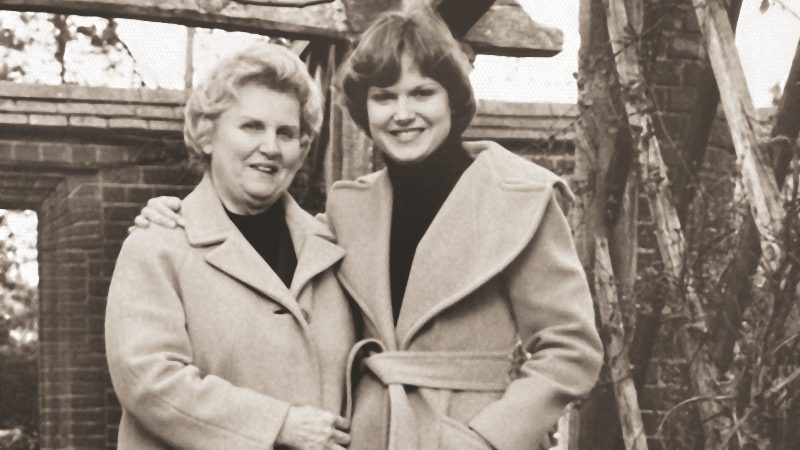“Seventh-day Adventists accept the Bible as their only creed….”
The Preamble to the 28 Fundamentals is probably the least read portion of the official statement. Yet it is essential in order to understand the Adventist perspective on the list of doctrines that follow. The quotation above is the first comment in the 28 Fundamentals document.
The insistence that we do not have a creed other than the Bible is a very significant position. Historically Adventists were very much against establishing a creed. The pioneers1 spoke against having a creed, having themselves experienced persecution in other churches when creeds were used to expel them from their congregations. Their consistent demand was for Christian beliefs and teachings that harmonize with the Bible. Otherwise, those teachings were to be rejected.
So from the very beginning, Adventist beliefs were firmly grounded in Scripture. There could be no appeal to some other authority, least of all as a test of fellowship. This was in order to ensure that the church did not use force or compulsion but instead welcomed all who would accept the supreme authority of God’s Word.
Not that there weren’t any debates. The pages of the early church magazines were full of discussions as to the meaning of different passages of Scripture. Even the early leaders needed time to rethink their beliefs and to make sure their understanding was correct.
But what about today?

The same principle applies. Though the 28 Fundamentals are an attempt to codify Adventist understanding of Scripture, they are not to be a means of controlling or inhibiting genuine Christian conversation. In fact, the Preamble allows for “revision of these statements,” indicating that we do not believe we have arrived at a final description of Adventist beliefs. We look to be “led by the Holy Spirit to a fuller understanding of Bible truth.” In addition, we may discover better ways of expressing what we believe, “if better language is found to express the teachings of God’s Holy Word.” It’s not all set in stone!
That said, the 28 Fundamentals do express what we believe today. “These beliefs, as set forth here, constitute the church’s understanding and expression of the teaching of Scripture.” It’s the way we understand God’s Word. To some, this list of beliefs may seem “creedal,” but they are a way of stating what we have generally agreed. In the same way that early Adventists needed to give some formulation of their “fundamental principles”2 in order to distinguish themselves from others who might claim to be teaching in the name of the church, we need to highlight those matters that we find in Scripture to be most important.
Of course, the current document is a product of a multitude of committees and General Conference Sessions. As such, it is rather formulaic and propositional. It makes statements along with Biblical texts to support them. All well and good. But it is hardly what you want for bedtime reading!
We believe the Preamble is a humble place to begin. It’s important that we don’t give the impression that we have all God’s truth encapsulated in our statements of belief or that there is nothing more to discover. Additionally, is it just about being correct, or is it all about a living relationship with the God we are trying to describe?
We must always begin with the Bible. We can refer to our “shortcut summary” in the list of Fundamentals, but maybe we should go straight to Scripture to help people understand not only God’s truth but how He wants to relate to each and every one of us.
So let’s go to the words of Jesus. When He was confronted with religious leaders who wanted to reject Him based on their established beliefs, He quoted Isaiah against them, saying that they were “Teaching as doctrines the commandments of men” (Mark 7:7, NKJV).
This is what we have to prevent. By developing creedal formulas, some have ended up with statements that are man-made. This is why taking the Bible as our creed is so important. We need to avoid “making the word of God of no effect through your tradition,” as Jesus went on to say (Mark 7:13. NKJV).
Jesus invariably pointed to the Bible as the source of truth. During His temptations, He quoted Deuteronomy, saying “The Scriptures say, ‘People do not live by bread alone, but by every word that comes from the mouth of God’” (Matthew 4:4, NLT). He also declared, “Even more blessed are all who hear the word of God and put it into practice” (Luke 11:28, NLT).
Like Luther, we say, “Here I stand. I cannot do otherwise.” On the Bible, and the Bible only.
_____________________________
Ray Tetz is director of communication & community engagement of the Pacific Union Conference.
- These included Ellen White, James White, J.N. Andrews, Merritt E. Cornell, A.G. Daniells, S.N. Haskell, A.T. Jones, J.N. Loughborough, W.W. Prescott, Uriah Smith, E.J. Waggoner, and J.H. Waggoner.
- The first significant attempt to do this was in 1872.
El preámbulo de las 28 Creencias Fundamentales
Por Ray Tetz
«Los Adventistas del Séptimo Día aceptan la Biblia como su único credo…»
El preámbulo de las 28 creencias fundamentales es probablemente la parte menos leída de la declaración oficial. Sin embargo, es esencial para entender la perspectiva adventista en la lista de doctrinas que siguen. La cita anterior es el primer comentario en el documento de las 28 creencias fundamentales.
La insistencia en que no tenemos otro credo que no sea la Biblia es una posición muy significativa. Históricamente, los adventistas estaban muy en contra de establecer un credo. Los pioneros1 hablaron en contra de tener un credo, ya que ellos mismos experimentaron persecución en otras iglesias cuando se usaron credos para expulsarlos de sus congregaciones. Su demanda constante era de creencias y enseñanzas cristianas que armonizaran con la Biblia. De lo contrario, esas enseñanzas serían rechazadas.
Así que, desde el principio, las creencias adventistas estaban firmemente arraigadas en las Escrituras. No se podía apelar a ninguna otra autoridad, y mucho menos como prueba de hermandad. Eso fue con el fin de asegurar que la iglesia no usara la fuerza o la compulsión, sino que diera la bienvenida a todos los que aceptaran la autoridad suprema de la Palabra de Dios.
No es que no hubiera debates. Las páginas de las revistas de la iglesia primitiva estaban llenas de discusiones sobre el significado de diferentes pasajes de las Escrituras. Incluso los primeros líderes necesitaron tiempo para considerar sus creencias y asegurarse de que su comprensión era correcta.
Pero, ¿y hoy?

Se aplica el mismo principio. Aunque las 28 creencias fundamentales son un intento de codificar la comprensión adventista de las Escrituras, no deben ser un medio para controlar o inhibir la genuina conversación cristiana. De hecho, el preámbulo permite la «revisión de estas declaraciones», lo que indica que no creemos haber llegado a una descripción final de las creencias adventistas. Buscamos ser «guiados por el Espíritu Santo a una comprensión más plena de la verdad bíblica». Además, podemos descubrir mejores maneras de expresar lo que creemos, «si se encuentra un lenguaje mejor para expresar las enseñanzas de la Santa Palabra de Dios». ¡No todo está escrito en piedra!
Dicho esto, las 28 creencias fundamentales expresan lo que creemos hoy. «Estas creencias, tal como se exponen aquí, constituyen la comprensión y expresión de la enseñanza de las Escrituras por parte de la iglesia». Es la manera como entendemos la Palabra de Dios. Para algunos, esa lista de creencias puede parecer «un credo», pero son una forma de afirmar lo que generalmente hemos acordado. De la misma manera que los primeros adventistas necesitaban dar alguna formulación de sus «principios fundamentales»2 Con el fin de distinguirse de otros que podrían afirmar estar enseñando en nombre de la iglesia, necesitamos resaltar aquellos puntos que encontramos en las Escrituras como los más importantes.
Por supuesto, el documento actual es producto de una multitud de comités y sesiones de la Conferencia General. Como tal, es más bien predecible y proposicional. Hace declaraciones junto con textos bíblicos para apoyarlas. Lo cual está muy bien. ¡Pero no es lo que se te antoja leer antes de dormir!
Creemos que el preámbulo es un humilde punto de partida. Es importante que no demos la impresión de que tenemos toda la verdad de Dios encapsulada en nuestras creencias fundamentales o que no hay nada más que descubrir. Además, ¿se trata solo de estar en lo correcto, o se trata de una relación viva con el Dios que estamos tratando de describir?
Siempre debemos comenzar con la Biblia. Podemos referirnos a nuestro «resumen abreviado» en la lista de creencias fundamentales, pero tal vez deberíamos ir directamente a las Escrituras para ayudar a las personas a entender no solo la verdad de Dios, sino también cómo él quiere relacionarse con todos y cada uno de nosotros.
Así que vayamos a las palabras de Jesús. Cuando fue confrontado con líderes religiosos que querían rechazarlo basándose en sus creencias establecidas, citó a Isaías en contra de ellos, diciendo que estaban «enseñando como doctrinas mandamientos de hombres» (Marcos 7:7).
Eso es lo que tenemos que prevenir. Al desarrollar fórmulas de credo, algunos han terminado con declaraciones que son hechas por el hombre. Esa es la razón por la que es tan importante tomar la Biblia como nuestro credo. Necesitamos evitar «hacer inútil la palabra de Dios por medio de su tradición», como Jesús continuó diciendo (Marcos 7:13).
Jesús invariablemente señaló a la Biblia como la fuente de la verdad. Durante sus tentaciones, citó Deuteronomio, diciendo: «Las Escrituras dicen: “No solo de pan vivirá el hombre, sino de toda palabra que sale de la boca de Dios”» (Mateo 4:4). También declaró: «Más bienaventurados son los que oyen la palabra de Dios y la ponen en práctica» (Lucas 11:28).
Al igual que Lutero, decimos: «Aquí estoy. No puedo hacer otra cosa». La Biblia y sólo la Biblia.
_____________________________
Ray Tetz es director de comunicación y participación comunitaria de la Pacific Union Conference.
- Estos incluían a Ellen White, James White, J. N. Andrews, Merritt E. Cornell, A. G. Daniells, S. N. Haskell, A. T. Jones, J. N. Loughborough, W. W. Prescott, Uriah Smith, E. J. Waggoner y J. H. Waggoner.
- El primer intento significativo de hacerlo fue en 1872.






